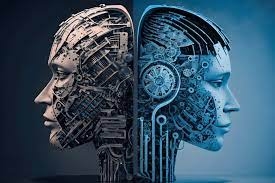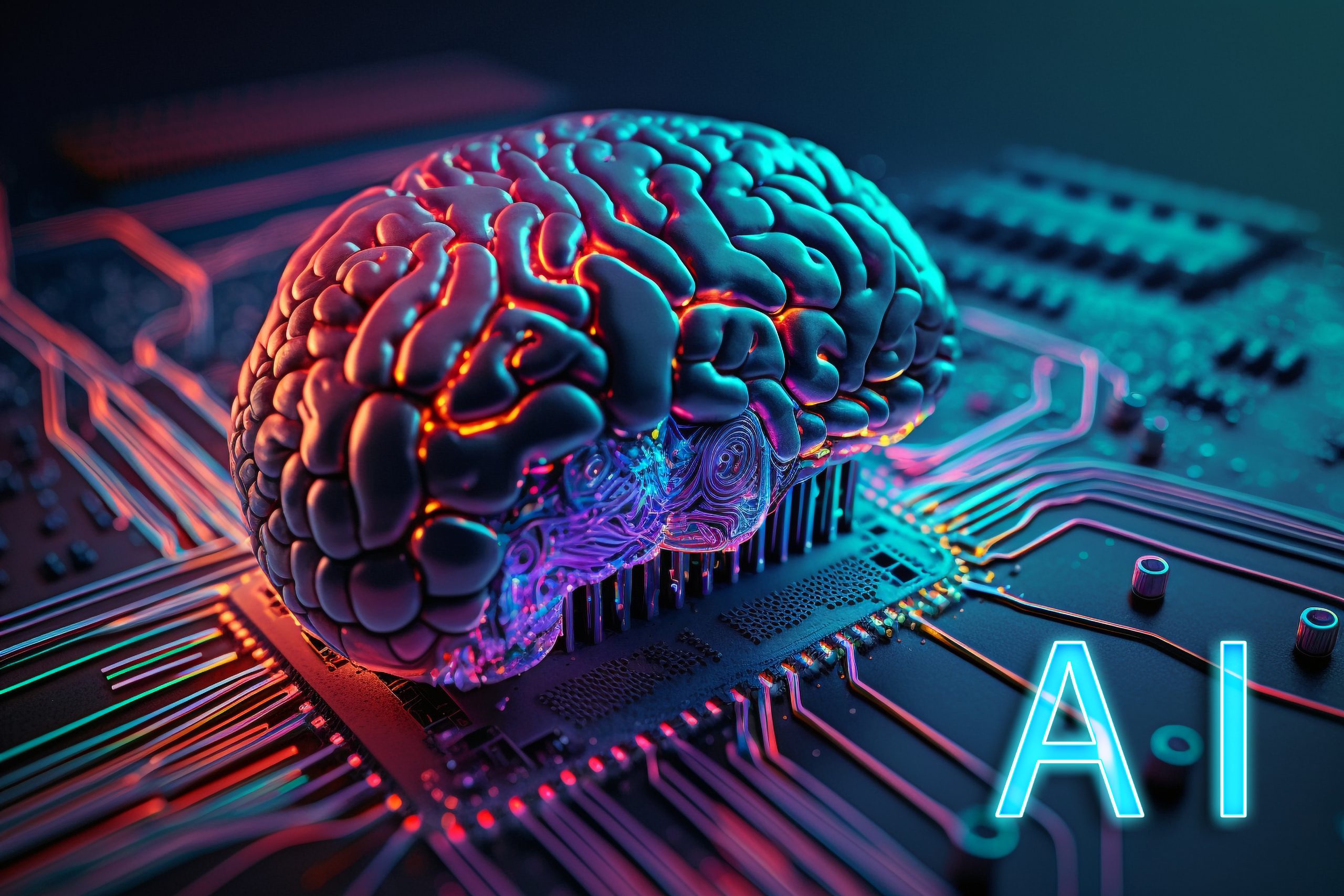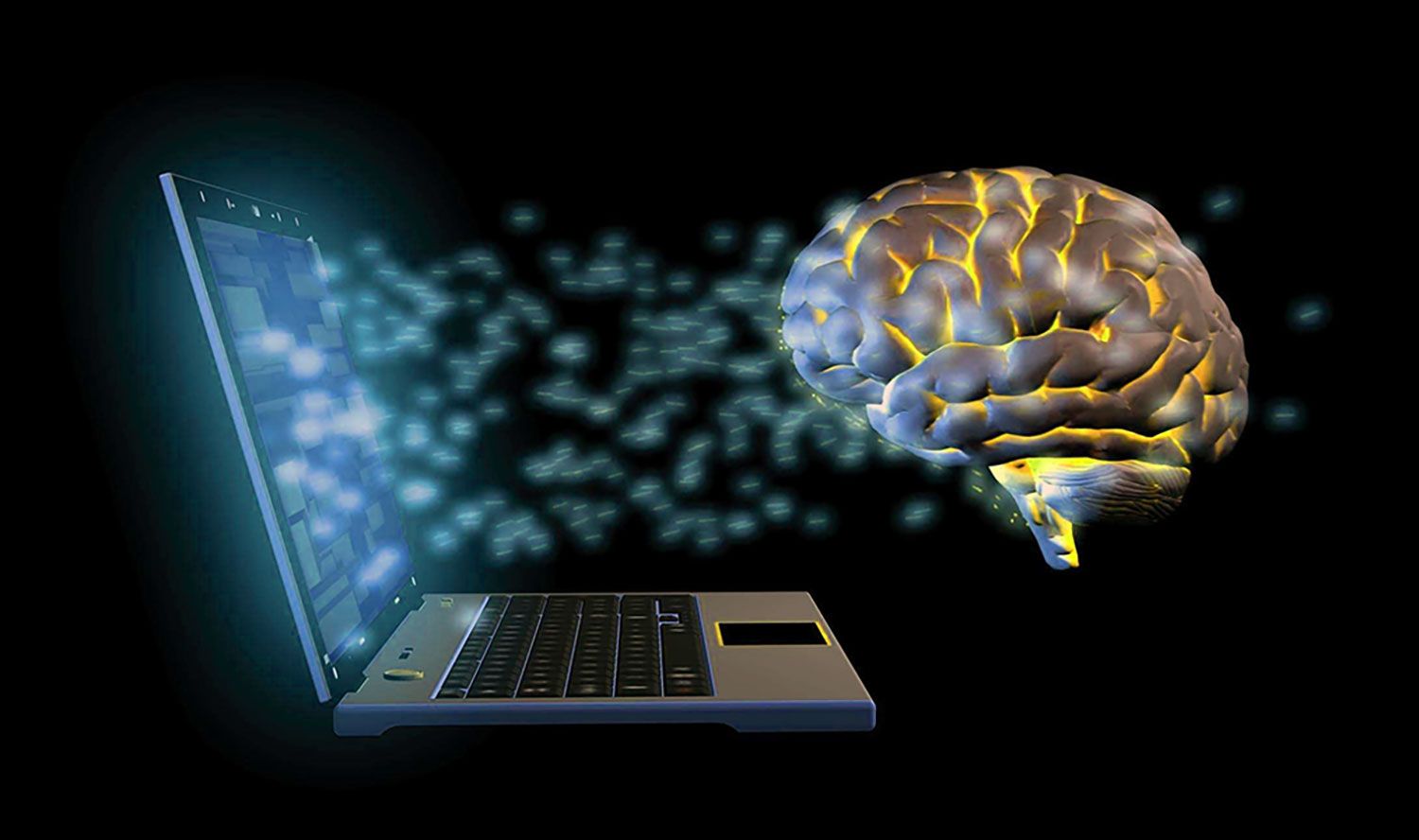Exploring the Boundaries of Innovation - Breakthrough Technologies Shaping Our Future

In today's rapidly evolving world, technological advancements are not only transforming industries but also redefining the way we live, work, and interact. From artificial intelligence to biotechnology, innovative technologies are pushing the boundaries of human potential and shaping the future in unprecedented ways. In this article, we delve into some of the most remarkable breakthrough technologies that are revolutionizing various sectors and driving us towards a new era of possibilities.
Artificial Intelligence - Unleashing the Power of Machine Learning
Artificial Intelligence (AI) has emerged as a revolutionary force across industries, unleashing the power of machine learning algorithms to perform tasks that were once the exclusive domain of human intelligence. From autonomous vehicles that navigate complex roadways to personalized healthcare solutions that diagnose diseases with incredible accuracy, AI is transforming the way we approach challenges. Natural language processing (NLP) is enabling machines to understand and generate human language, giving rise to virtual assistants and language translation tools that bridge global communication gaps.

Blockchain - Redefining Trust and Security
Blockchain technology has disrupted conventional notions of trust and security by providing a decentralized and tamper-proof method of recording transactions. Originally developed to support cryptocurrencies like Bitcoin, blockchain has found applications in various domains beyond finance. Supply chain management, digital identity verification, and even voting systems are being reimagined using blockchain, as its transparent and immutable nature ensures data integrity and reduces the risk of fraud.
Biotechnology - Merging Technology and Biology
The synergy between technology and biology has led to groundbreaking innovations in the field of biotechnology. Gene editing techniques such as CRISPR-Cas9 have enabled precise modifications to the DNA of living organisms, offering the potential to treat genetic diseases and enhance agricultural productivity. The creation of lab-grown tissues and organs is revolutionizing healthcare, addressing organ transplant shortages and reducing the need for animal testing. As biotechnology continues to evolve, ethical and regulatory considerations become paramount to ensure responsible use.
Renewable Energy - Paving the Path to Sustainability
In the face of climate change, renewable energy technologies have gained significant traction as a means to reduce carbon emissions and transition towards sustainable energy sources. Solar panels, wind turbines, and hydropower systems are harnessing natural resources to generate electricity, reducing our reliance on finite fossil fuels. Energy storage solutions, such as advanced batteries, are tackling the intermittent nature of renewable energy sources, making clean energy more accessible and dependable.
Quantum Computing - A Leap into Uncharted Computational Territory
Quantum computing is poised to revolutionize the world of computation by harnessing the principles of quantum mechanics. Unlike classical computers that use bits to represent 0s and 1s, quantum computers use qubits that can exist in multiple states simultaneously. This allows them to solve complex problems, like optimization and cryptography, at speeds unattainable by classical computers. Although still in its infancy, quantum computing holds immense promise for fields ranging from drug discovery to optimization of supply chains.
Virtual and Augmented Reality: Reshaping Human Experience
Virtual Reality (VR) and Augmented Reality (AR) are reshaping how we perceive and interact with the digital and physical worlds. VR immerses users in entirely digital environments, revolutionizing industries like gaming, education, and training simulations. AR overlays digital information onto the real world, enhancing fields like navigation, architecture, and retail experiences. These technologies are blurring the lines between the real and virtual realms, unlocking new dimensions of creativity and engagement.
Space Exploration - Pushing the Boundaries of Human Exploration
Advancements in space exploration technology are fueling humanity's ambitions to reach the stars. Private companies are developing reusable rockets, significantly reducing the cost of accessing space. Projects like SpaceX's Starship aim to enable interplanetary travel, while the James Webb Space Telescope promises to unveil the mysteries of the cosmos with unprecedented clarity. As technology makes space more accessible, the possibilities for scientific discovery and even colonization of other planets become increasingly plausible.
5G and Beyond - Transforming Connectivity and Communication
The fifth generation of wireless technology, commonly known as 5G, has taken the world by storm, offering lightning-fast data speeds and incredibly low latency. 5G's capabilities are not limited to faster internet on smartphones; they extend to powering smart cities, autonomous vehicles, and the Internet of Things (IoT). With the ability to connect a vast number of devices seamlessly, 5G is a catalyst for innovation in industries as diverse as healthcare, manufacturing, and entertainment. As we embrace 5G's potential, researchers are already exploring the possibilities of even more advanced communication technologies, such as terahertz communication, which could further redefine the way we connect.
Nanotechnology - Small Scale, Big Impact
Nanotechnology involves manipulating matter at the nanoscale, where properties can differ dramatically from those at larger scales. This technology has applications across various fields, from medicine to electronics. In medicine, nanoparticles are being developed for targeted drug delivery, imaging, and even cancer treatment. In electronics, nanomaterials are paving the way for more efficient and powerful devices. As researchers continue to uncover the secrets of the nanoscale world, the potential for innovation seems boundless.
Neurotechnology - Decoding the Brain-Machine Interface
Advancements in neurotechnology are bridging the gap between the human brain and machines. Brain-computer interfaces (BCIs) enable direct communication between the brain and external devices, offering new avenues for assisting individuals with paralysis, neurological disorders, and even enhancing cognitive abilities. Research in this field is rapidly evolving, with experiments demonstrating the ability to control prosthetics, type with thoughts, and even restore sensory perceptions. While the ethical implications are significant, the potential to improve the lives of those with disabilities is undeniable.

Circular Economy and Sustainable Tech - Redefining Consumption
In the face of environmental challenges, the concept of a circular economy is gaining momentum. This model promotes reducing waste, reusing materials, and recycling to minimize the impact on the planet. Innovative technologies play a crucial role in enabling the circular economy. For instance, advanced recycling techniques can extract valuable materials from electronic waste, while biodegradable materials are finding applications in packaging and manufacturing. As society places a greater emphasis on sustainability, technology-driven solutions are vital for achieving lasting change.
Quantified Self - Personalized Data for Health and Wellness
The quantified self movement leverages wearable devices and sensors to collect and analyze data about an individual's daily activities, health, and habits. From tracking steps and heart rate to monitoring sleep patterns and dietary intake, these devices provide valuable insights into personal well-being. As AI algorithms become more sophisticated, the potential to transform this data into actionable recommendations for health and wellness grows. However, ensuring data privacy and accuracy remains a key challenge as the quantified self continues to gain traction.
Autonomous Systems - Shaping the Future of Automation
Autonomous systems, including robots and drones, are redefining industries that rely on repetitive tasks and remote operations. In manufacturing, robots work alongside human workers to enhance efficiency and precision. Drones are used for tasks ranging from aerial photography to delivery of goods. However, as these systems become more autonomous, questions about job displacement, safety, and ethical decision-making come to the forefront. Striking a balance between human control and machine autonomy will be essential as we integrate these technologies further into our lives.
Cybersecurity and AI - The Battle of Wits
As technology advances, so do the threats in the digital realm. Cybersecurity is a constant concern in an increasingly interconnected world. Fortunately, AI is not only transforming attackers' tactics but also aiding defenders in predicting and preventing cyberattacks. Machine learning algorithms can analyze vast amounts of data to detect anomalies and patterns indicative of breaches. Nevertheless, the evolving nature of cyber threats means that the battle between security experts and malicious actors will remain ongoing, requiring continual innovation and adaptation.
Emerging Technologies in Healthcare - Revolutionizing Treatment and Diagnostics
In the realm of healthcare, emerging technologies are making remarkable strides in revolutionizing patient care, diagnosis, and treatment. Telemedicine, for example, has gained significant traction, allowing patients to access medical consultations remotely, especially valuable in times of pandemics. The fusion of AI and medical imaging is enhancing diagnostics accuracy, enabling early detection of diseases such as cancer. Furthermore, innovations like precision medicine tailor treatments to an individual's genetic makeup, optimizing outcomes and minimizing side effects. As healthcare becomes more personalized and accessible, the intersection of technology and medicine continues to shape a healthier future for all.

Environmental Monitoring - Technology for a Sustainable Planet
The urgency of addressing climate change has driven the development of innovative technologies for environmental monitoring and conservation. Smart sensors and satellite imaging enable real-time tracking of pollution levels, deforestation, and changes in ecosystems. These tools empower scientists, policymakers, and communities to make informed decisions to protect our planet's natural resources. As we strive for a sustainable future, these technologies play a pivotal role in monitoring our impact on the environment and driving efforts towards conservation.
Education and E-Learning - Transforming the Way We Learn
The digital revolution has extended to education, with e-learning platforms transforming traditional classrooms into dynamic online learning environments. Video lectures, interactive simulations, and virtual reality applications are enhancing the learning experience and making education more accessible to individuals across the globe. Additionally, AI-driven tools provide personalized learning pathways, catering to students' unique strengths and weaknesses. As technology continues to shape education, it's essential to strike a balance between virtual and in-person interactions to foster holistic learning experiences.
Agricultural Technology - Feeding the Global Population
The challenge of feeding a growing global population has spurred innovation in agricultural technology, or AgTech. Precision agriculture employs sensors, drones, and AI to optimize crop management, increase yield, and reduce resource wastage. Vertical farming and hydroponics offer efficient ways to cultivate crops in urban environments with limited space and resources. These advancements are crucial for ensuring food security while minimizing the environmental footprint of agriculture.
Transportation Evolution - From Electric Vehicles to Hyperloop
The transportation sector is undergoing a transformation with the rise of electric vehicles (EVs), autonomous driving, and ambitious projects like the Hyperloop. EVs are reducing carbon emissions and reimagining the concept of personal transportation. Meanwhile, self-driving cars have the potential to make roads safer and more efficient, although regulatory challenges and ethical considerations remain. The Hyperloop, a high-speed transportation system, could revolutionize long-distance travel by propelling passengers through vacuum tubes at incredible speeds. These innovations have the potential to reshape the way we move and explore the world.
Innovation Insights
For more insights into innovation and technology, including interviews with industry experts, consider visiting Stationzilla. The platform provides a comprehensive view of the latest trends, thought leadership, and impactful developments in the tech landscape. Stay informed and inspired as you continue to explore the limitless possibilities of innovation.
Conclusion
Innovation is the driving force behind human progress, and the technologies discussed in this article represent just a glimpse of the transformative potential that lies ahead. From AI and biotechnology to renewable energy and space exploration, these breakthroughs are reshaping industries, challenging our understanding of the possible, and inviting us to explore new frontiers. As we navigate the ethical, societal, and regulatory implications of these advancements, it's essential to harness their power responsibly, ensuring that the future we create is one of prosperity, sustainability, and collective well-being. The journey into the future is exhilarating, and with the right approach, we can navigate it with wisdom and innovation as our guiding stars.
- Industry
- Art
- Causes
- Crafts
- Dance
- Drinks
- Film
- Fitness
- Food
- Giochi
- Gardening
- Health
- Home
- Literature
- Music
- Networking
- Altre informazioni
- Party
- Religion
- Shopping
- Sports
- Theater
- Wellness
- News


